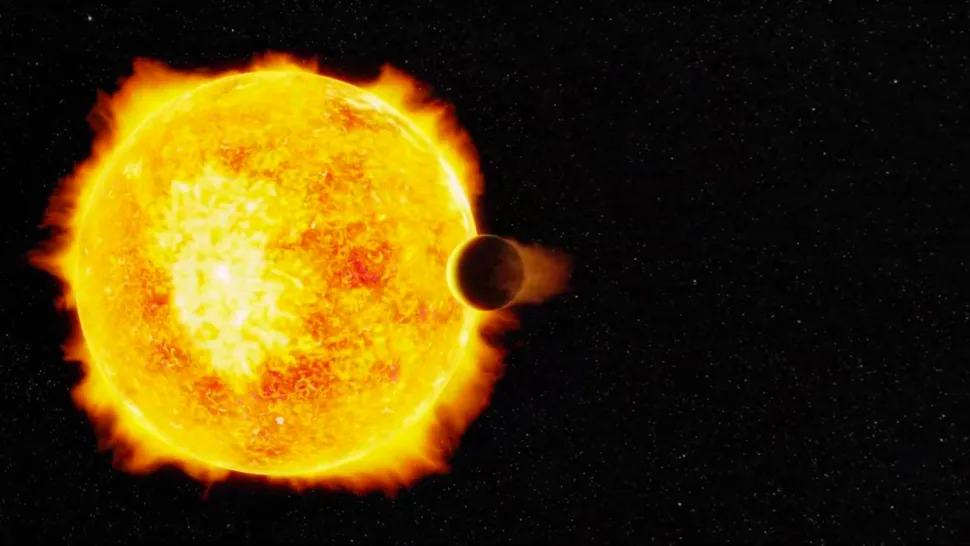Astronomers Peer into the Atmosphere of a Rare Exoplanet that ‘Shouldn’t Exist’
By Michelle Starr | ScienceAlertOCTOBER 28, 2020 | The discovery of the extraordinary exoplanet LTT 9779b was first announced a month ago. Just 260 light-years away, the planet was immediately pegged as an excellent candidate for follow-up study of its curious atmosphere. But it turns out we didn’t even have to wait too long to learn more.
(Image: © Ricardo Ramirez/Universidad de Chile)LTT 9779b is a little bigger than Neptune, orbiting a Sun-like star – fairly normal so far. But two things are really peculiar. It’s so close to its star, the planet orbits once every 19 hours; and, in spite of the scorching heat it must be subjected to at that proximity, LTT 9779b still has a substantial atmosphere.
Infrared observations collected by the now-retired Spitzer Space Telescope included the planet’s host star, and astronomers have now analysed those data, publishing their results in a couple of studies.
